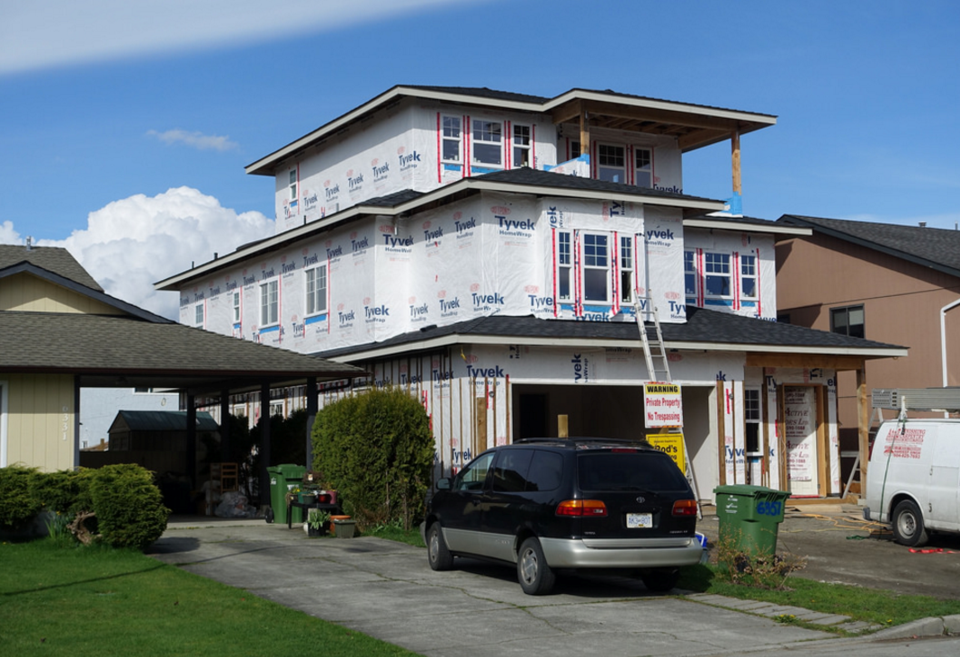Richmond city council unanimously terminated the land-use contracts of roughly 4,000 single-family home properties Tuesday night at a special public hearing that lasted close to four hours.
“In a nutshell what we’re ending up with is (council) has a goal of what Richmond neighbourhoods should look like and that doesn’t include three-storey boxes,” said Coun. Alexa Loo.
The highly contentious provincial agreements dating back to the 1970s have posed problems for city planners as they superseded the city’s residential zoning bylaws.
As such, the land-use contracts (LUC) allowed property owners to build three-storey homes in neighbourhoods initially designed with two-storey homes.
“What was upsetting a lot of people, was those three-storey monster houses that had balconies looking over other people’s yards; so we’ve eliminated those,” said Loo.
The City of Richmond was afforded the right by the provincial government to terminate the contracts earlier than the 2024 sunset date for all such contracts across B.C. Other municipalities have undertaken the same steps in an effort to bring conformity to zoning regulations.
The termination will be finalized at the next council meeting and take effect in one year’s time (grace period for development opportunities).
Realtor Lynda Terborg spearheaded a group of residents to terminate LUCs.
“The overall benefits of early termination far out weigh objections of a few who still have appeal privileges and the generous one year delay before termination comes into effect. Adjoining zoning owners have no avenue to appeal a super build coming near them,” Terborg told the panel of councillors at the hearing.
Terborg dismissed the notion that LUC termination would lead to lower property values. She compared two homes, dictated by LUCs on similar sized lots, which recently sold. One house, on Pelican Court, was 3,200 square feet and sold for $2.25 million. The other house, on Pintail Drive, was three stories and 6,200 square feet and sold for $1.9 million.
Terborg said better design contributed to the smaller house selling for more.
Loo said many of the people who were opposed to the termination took issue with the process, as opposed to wanting to keep three-storey homes.
Loo said she does not necessarily expect a rush to develop three-storey homes during the grace period. She noted that by terminating the LUCs the affected property owners would now be able to build secondary suites, which could in effect bolster their property’s value.
Loo noted some residents could be applying to the citizen-led Board of Variance to cancel the termination of the LUC of their respective properties. She said some residents do have valid concerns; particular those with oddly shaped or small lots whereby the city’s zoning regulations could pose hardship.



